In the grim years of the Depression and the poverty-stricken 1930s, America took to its heart a lovable, curly-haired little girl who looked every bit as vulnerable as they felt, but who with the help of her pals and tender good-hearted grownups would put her best foot forward and surely win through in the end. This was Shirley Temple, who in that decade became one of the biggest stars in the world — her career and attractions shrewdly nurtured by the formidable 20th Century Fox studio chief Darryl F Zanuck, for whom Temple became a singing-and-dancing, ringleted cash calf.
She also achieved fame as a striking, almost unique example of how a child star graduates gracefully from the juvenile-lead status that messes with so many actors' heads. Shirley Temple didn't twerk. She became America's representative to the UN, and later ambassador to both Ghana and Czechoslovakia — although these public-service ambitions grew out of an uneasy adventure in television in her 20s. She sensed that, out of childhood, she was like Esther Williams out of a swimming pool: not really a star. But nonetheless she had style, self-possession, a brand-recognition factor and a capacity for public performance, and sensed that this could be parlayed into a career in politics.
Her movies were saccharine adventures in which this poor little thing would face something awful but show indomitable perkiness: she was a Kid without any Chaplin to provide dramatic or comic corrective to the sugary sentiment. In Bright Eyes (1934), she achieved almost household-deity status in the United States: the movie was conceived specifically for her. Temple played sweet little orphan girl Shirley, nicknamed "bright eyes".
The movie played brilliantly and mercilessly on the audience's protective instincts and offered them the sensational song: On The Good Ship Lollipop, a sugary lullaby about "sailing" through the air to a longed-for world of candy. "But if you eat too much — Ooh! Ooh! — you'll awake with a tummy ache!" Hungry Americans could only dream about having so much candy. At just six years old, Temple delivered that number with eerie accomplishment, like an alien from the Planet Professional, to adult actors who had to wear fixed grins. She had a mesmerically precocious control of pace and tone: calmly, jauntily unhurried and unselfconscious with a tiny, gulpy crack on the higher notes.
Temple's other keynote movie came a year later with Curly Top (1935) in which she plays Elizabeth, a little girl who is in an orphanage — but of course — where her attractive grownup sister works in the kitchen. A wealthy trustee of the orphanage takes a kindly shine to Elizabeth, and while making moves to adopt her, falls in love with her older sister. It was in this film that Temple gave the world her other legendary song, Animal Crackers In My Soup: singing in the orphanage about finding these crackers in the way she finds something to be cheerful about in her tough life — making the best of things.
Reading on mobile? Watch Shirley Temple sing Animal Crackers In My Soup here
In her early 20s, Temple quit the movies, sensing that she could never have that electric stardom she had as a little girl, and her cutesy mannerisms looked uncomfortable as she had neared and entered adolescence.
And it was due to this issue that Temple had Hollywood history's most famous run-in with a film critic, and not just any film critic. In 1937, when Temple was nine years old, Graham Greene reviewed her film Wee Willie Winkie in the now defunct Night and Day magazine: "Her admirers – middle-aged men and clergymen – respond to her dubious coquetry, to the sight of her well-shaped and desirable little body, packed with enormous vitality, only because the safety curtain of story and dialogue drops between their intelligence and their desire."
20th Century Fox sued for libel, claiming that Greene had implied that the studio had deliberately marketed the movie in this unwholesome way – and won. It seems possible that Greene's trip to Mexico, which spawned his novel The Power and the Glory and began before the trial, was hastened so that, being in a country with no extradition arrangement with Britain, he could avoid a prison sentence for criminal libel. As it was, the civil libel fine effectively destroyed the magazine and the matter ended there.
The Temple/Greene case is interesting in that it is an example of how a particularly lofty or "literary" strain of film criticism is still inclined to mock or patronise Hollywood, or use it as the raw material for jokes or provocation. But Hollywood has teeth. And Greene wasn't the last writer to discover that Britain's libel laws provide rich pickings for wealthy and powerful celebrities.
Shirley Temple's movie persona was a kind of gawky cousin to the Elizabeth Taylor of National Velvet or indeed the Julie Andrews of The Sound of Music: adorable, sweet-natured, with grownup accomplishments but sexless and artless — and utterly at home in showbusiness. To have done so well at such at extraordinarily early age, but extricated herself from the hothouse world of child-stardom with such success, was a type of miracle.
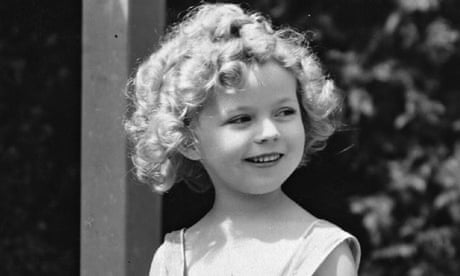
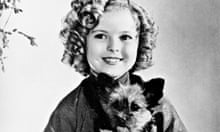
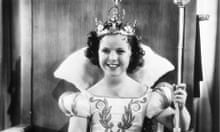

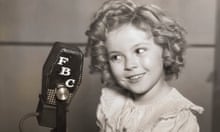
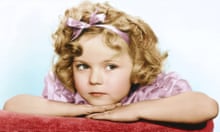
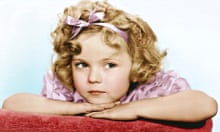
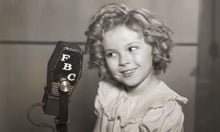
Comments (…)
Sign in or create your Guardian account to join the discussion